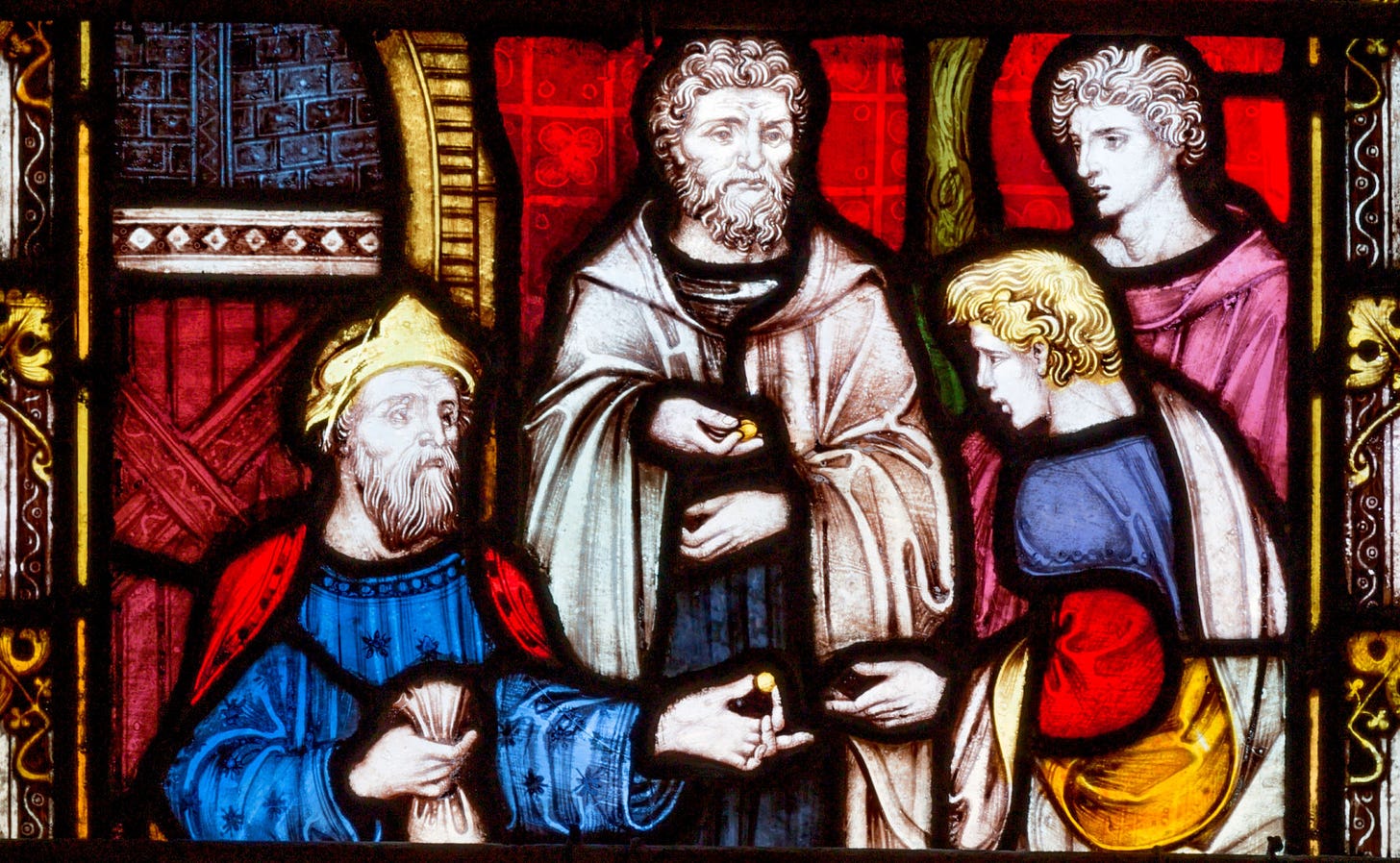In the Gospel of Matthew, our Lord delivered a parable about a wealthy man with three servants. The man entrusted a share of money to each servant according to his abilities before going on a journey. To his best servant he gave five talents, to another two, and to another one. (A talent represented essentially a lifetime of work, so this was some serious capital.)
When the master returned, he asked what each servant had done with his money. The servant with five talents had traded and invested, earning five talents more. The master was pleased: “Well done, good and faithful servant!”
The servant with two talents had done just as well, also increasing his investment by 100%. The master was just as pleased.
But the servant with a single talent, fearing the wrath of his master should he make a poor investment, buried the talent. The master was not pleased. “Cast the worthless servant into the outer darkness. In that place there will be weeping and gnashing of teeth.”
Ouch.
God created each one of us for a purpose. He did not put us on this earth with aptitude, wealth, or influence only for us to bury it in the ground and simply mark time. We each have a job to do, and we should do it boldly.
In his first epistle to Timothy, Paul says, “for God gave us a spirit not of fear but of power and love and self-control.” We were not made to timidly move through life, but to boldly advance the Kingdom of Heaven. That does not mean rashness, obviously, but rather confidence.
Despite being a pretty smart kid in school, by my 20s I was stuck. I wasn’t sure what I wanted to do with my life, and every time I had an idea I thought it through to my inevitable failure and decided not to bother. Before I could succeed at anything, I had to get over my fear of failing.
Scott Adams, the cartoonist who created Dilbert, developed a philosophy that I have found extremely helpful. In 2013 he wrote a book called How to Fail at Almost Everything and Still Win Big in which he explains the secret of his own success. His first recommendation is to create systems rather than set goals. Goals are nice, but there is nothing inherent in a goal that actually helps you reach it. Failing to reach a goal can leave you demoralized, as I once was. A system, on the other hand, is a habit that you develop that can get you where you want to go. From the book:
In the world of dieting, losing twenty pounds is a goal, but eating right is a system. In the exercise realm, running a marathon in under four hours is a goal, but exercising daily is a system. In business, making a million dollars is a goal, but being a serial entrepreneur is a system.
Scott Adams
The biggest takeaway from the book is that we should not be afraid to fail. Failure breeds experience, and experience builds success, while fear of failure can prevent us from trying in the first place. Scott Adams failed in his first career, but that experience gave him fodder for a silly comic about an office that turned out to be surprisingly popular. Adams calls this a talent stack. Each endeavor you undertake, even if it ends in failure, gives you a new talent that you can combine with others to create a unique value proposition.
I had begun to embrace this philosophy before Adams gave it a name. After spending my 20s spinning my wheels, I decided to make my 30s a decade of action. I quit my job, traveled the country, got married, started a family, bought a house, sold it, traveled the country again, settled in Idaho, and the day before my 40th birthday I jumped careers from IT to political communication. Even when I fail, as I do, I always learn valuable lessons that help me succeed next time. I often feel like I’m falling forward, but never quite hitting the ground. It’s been quite a ride!
I was just talking to someone who recently ran for office. Despite losing, he explained how he learned a lot about campaigning, raising money, and connecting with people, and which has him well prepared to succeed in a new role. That should be the attitude we all have. We should not fear failure, rather we should appreciate it as a teacher, and welcome the new opportunities that it brings.
God did not put us here to coast through life. Our time on earth should be spent continually learning, continually advancing, continually growing as men and women, as fathers and mothers, as leaders, as servants, as foot soldiers for the Kingdom of Heaven. As I wrote earlier this week, we stand at a pivotal moment in the history of America, and of Western Civilization. Now is not the time for fear, but for bold action. Upward and onward!




